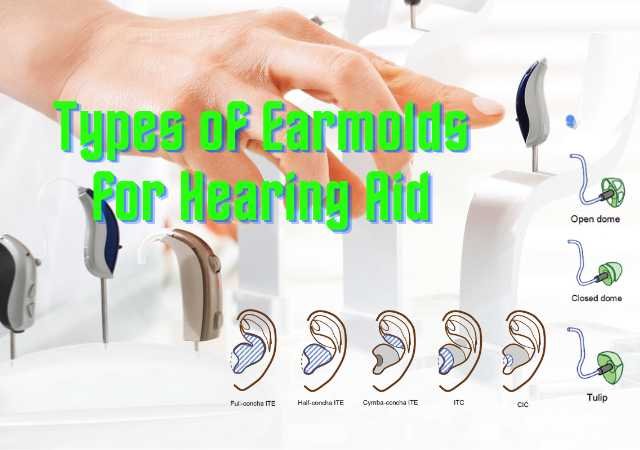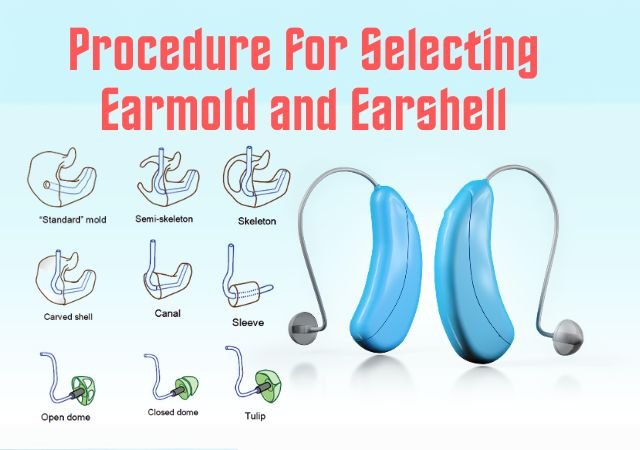Audiology Assistant Certification Exam – Dates | Syllabus | Prep: Obtaining your credential as an Audiology Assistant Certification Exam is an essential part of becoming an Audiology Assistant. This credential represents that you have knowledge and skills that set you above the rest and prepare you to be an effective assistant and a valuable addition to an audiology practice. In this blog, we will discuss all the details regarding the certification exam from registration process to preparation tips.

Working as an audiology assistant can be a gratifying career that involves working with audiologists in a supportive role. Before embarking on your career, however, you must pass the Audiology Assistant Certification Exam. Our comprehensive blog post will explain everything about the exam: key dates, syllabus, and preparation.
Understanding the Audiology Assistant Certification (C-AA) Exam
What is the C-AA Exam?
The Audiology Assistant Certification (C-AA) Exam, developed by the American Speech-Language-Hearing Association (ASHA) and approved by the Council for Clinical Certification in Audiology and Speech-Language Pathology (CFCC), assesses the knowledge and skills necessary for audiology assistants. This exam ensures that candidates understand their scope of practice, supervision requirements, and the basic tasks they will perform.
Eligibility Criteria
To be eligible for the exam, you must:
- Receive approval of your application and required documentation.
- Pay the initial certification fee of $249, which includes the exam and one year of affiliation.
Audiology Assistant Certification (C-AA) Exam Passing Score
Determining the Passing Score
The CFCC sets the passing score for the exam to ensure that only qualified candidates receive certification. The passing score reflects the minimum level of competency required for audiology assistants.
Current Passing Scores
The current passing score for the Audiology Assistant Certification Exam is 162. This score is the benchmark you need to achieve to become a certified audiology assistant.
Audiology Assistant Certification (C-AA) Exam Preparation
Developing a Study Plan
Preparation is key to passing the Audiology Assistant Certification Exam. Here are some steps to develop an effective study plan:
- Review the Exam Blueprint: Understand the topics covered in the exam.
- Assess Your Knowledge: Identify areas where you need improvement.
- Create a Schedule: Allocate specific times for study sessions.
- Use a Variety of Resources: Incorporate books, online materials, and practice exams.
Study Tips and Strategies
- Start Early: Give yourself plenty of time to cover all topics.
- Practice Regularly: Consistent practice helps reinforce knowledge.
- Join Study Groups: Collaborate with others to enhance your understanding.
- Take Breaks: Regular breaks can improve focus and retention.
Audiology Assistant Certification (C-AA) Exam Registration
Registration Process
Once you are approved to take the exam, ASHA will email you a unique Exam Eligibility ID and a link to register. Follow these steps:
- Click on the registration link in the email.
- Choose a test date and location that suits you.
- Complete the registration process online.
Fees and Important Dates
The initial certification fee is $249, which includes the exam and one year of affiliation. After approval, you have one year to schedule and take the exam.
Audiology Assistant Certification (C-AA) Exam Blueprint/Syllabus
Overview of Exam Blueprint
The exam blueprint is a detailed guide developed through research and practice analysis. It outlines the topics and skills that will be assessed, ensuring the exam reflects current industry standards.
Audiology Assistant Exam Blueprint [PDF]
Detailed Syllabus Breakdown
The syllabus for the Audiology Assistant Certification Exam includes:
- Providing Patient Care by Audiology Assistant (40%)
- Performing Hearing Device Maintenance by Audiology Assistant (20%)
- Maintaining the Audiology Clinic by Audiology Assistant (40%)
Audiology Assistant Certification (C-AA) Exam Practice Questions
Importance of Practice Questions
Practice questions are essential for familiarizing yourself with the exam format and types of questions you will encounter. They help build confidence and improve test-taking skills.
Where to Find Practice Questions
ASHA provides Sample questions for review and study purposes that reflect the style and content of the actual exam. These can be found on the ASHA website and in various study guides.
Audiology Assistant Certification Exam Practice Test Question Free
Audiology Assistant Certification (C-AA) Exam Resources
Recommended Study Resources
To prepare effectively, utilize the following resources:
- ASHA Website: Official study materials and guidelines.
- Books: Textbooks on audiology principles and practices.
- Online Courses: Interactive courses that cover the exam content.
ASHA-provided Resources
ASHA offers several resources, including:
Issues in Ethics: Audiology Assistants
This statement on issues in ethics is intended to provide guidance to audiology assistants and their supervisors. An audiology assistant, as appropriately trained and competency shown, operates tasks delegated and overseen by a board licensed and/or approved audiologist. These people might be called by various names — “technician,” “aide” or “assistant” — and they are not necessarily regulated by state laws, so it falls to the supervising audiologist to know what is required by the states where they work. Audiology assistants contribute to the patient care process through increased availability of and diversity of services across various environments. They help with service delivery or research under tightly regulated guidelines.
An assigned supervising audiologist maintains documentation, but assures that training conducted is competency based. Supervision is regular, noted, and documented. All legal and ethical obligations are maintained by the supervising audiologist for the delegated duties. Services provided must be compliant with state laws, and assistant must have ASHA’s minimum qualifications. Consumer demand and safety are the top priority. This statement provides ASHA’s policy and decisions, but is not intended to override federal or state law. Its purpose is to guide ethical decision making in audiology assistant practice. Further, audiologists utilize assistants in patient care, while hearing scientists use them in research. Even in the absence of a state law, hearing scientists must remain informed of credentialing requirements as part of their ethical obligations.
Issues in Ethics: Audiology Assistants
Medicaid Toolkit
Medicaid is a joint initiative between the federal and state governments to provide medical care to impoverished and medically needy individuals. Medicaid currently covers services rendered by audiologists and speech-language pathologists. Although the federal government does set out general guidelines, it is up to each state to run its own program. This includes establishing standards for income eligibility; selecting the type, amount, duration, and scope of covered services; and setting payment rates. State directors submit program plans to the federal Centers for Medicare and Medicaid Services (CMS) for reviews and approval, to be sure provinces comply.
This content was developed by the American Speech-Language-Hearing Association’s (ASHA) Medicaid Committee. It covers certain issues regarding audiology and speech-language pathology services covered by Medicaid.
Medicare Frequently Asked Questions
Medicaid is a state and federally funded program that pays for health coverage for eligible low-income people and families. Guidance on Audiology and Speech-Language Pathology Benefit Coverage Under Medicaid Covered providers of these services must satisfy Medicaid-designated criteria, including required certifications and issuances of state licensure. Some Medicaid beneficiaries are required to obtain referrals in order to enable these services.
Services covered under the Early and Periodic Screening, Diagnostic, and Treatment (EPSDT) program include necessary screenings, diagnostics, and treatments for individuals under 21. Medicaid distinguishes between mandatory services, which all states must provide, and optional services, which states can choose to offer. Payment determinations are made by state Medicaid agencies according to federal guidelines. Each state’s Medicaid plan, detailing covered services and provider qualifications, can be found on the respective state’s Medicaid website.
Medicare Frequently Asked Questions
Practice Portal
The ASHA Practice Portal facilitates audiologists, speech-language pathologists, and their assistants with resources for clinical decision making and improving practice efficiency. Provides access to curated and peer-reviewed content on a range of clinical and professional topics, as well as tools and templates to support practice. It serves as a comprehensive guide for topics such as accent modification, apraxia of speech, audiology support, augmentative and alternative communication, balance systems disorders, and many more.
Additionally, it provides resources on documentation, early intervention, fluency disorders, hearing loss, intellectual disability, and much more. Clients and patients can benefit from consumer resources and handouts available on the portal. By linking to the latest evidence and offering comprehensive resources, the ASHA Practice Portal aims to enhance the quality of care and professional service delivery in audiology and speech-language pathology. Learn more about the content development process on the portal.
Preferred Practice Patterns for the Profession of Audiology
Developed to enhance audiology service quality and serve as an educational resource for audiologists and other stakeholders, the Preferred Practice Patterns – developed by the American Speech-Language-Hearing Association (ASHA). These patterns serve as a framework for improving patient care across settings & informing professional preparation, continuing education and research. They are intended to serve as a flexible framework, allowing for creativity, but provide sufficient prescription to make it valuable. The patterns should not be used for assessment purposes, nor are they an alternative to a standardized measure, and should be employed in a culturally sensitive way and consistent with the ASHA Code of Ethics. They are procedure based and are consistent with both World Health Organization classifications and the Scope of Practice in Audiology. The guidelines detail anticipated results, indications and interventions, and precautions but adherence does not ensure results.
Preferred Practice Patterns for the Profession of Audiology
Self-Assessment for Cultural Competence
How culture influences your daily interactions You know, things about eye contact, directness and comfort with silence in conversation are all underpinned by cultural norms. Do you know your values, and how do they affect you?
The way you see this impacts both you and your care. What sort of conversations are you having with people who will have different experiences than your own? Contemplating your own self, practice and workplace policies is important, as they are a reflection of larger systems and mindsets. Self-assessments can give you insight into yourself, what makes you tick and motivate you to sit with yourself” checking in and reflecting is an ongoing process.
Self-Assessment for Cultural Competence
Hearing and Balance
Hearing and balance disorders represent a unique challenge that intimately impact individuals on a medical, psychological, physical, social, educational, and occupational level. Audiologists, as members of the specialised healthcare professional workforce, play a key role in the assessment, treatment and rehabilitation of these disorders. Thereby, they provide a holistic treatment approach supported by technological prowess and humane interactions, guiding and monitoring patients and their relatives along the entire rehabilitative journey. Audiologists seek to mitigate the debilitating effects of hearing and balance disorders and improve quality of life through the use of evidence-based treatments.
Audiologists are licensed and regulated in all 50 states and the District of Columbia. They offer assessment and treatment services including information about how the workings of the ear, how to test for hearing impairment, and what types of interventions may be helpful (such as hearing aids or cochlear implants). They also provide invaluable resources on preventing hearing loss, coping with dizziness and really valuable alternative ways to communicate, including when wearing masks. The Various Resources, Organizations, and Funding Opportunities Their work is supported by several Resources, Organizations, and Funding Opportunities to help people manage and overcome.
Infection Control
We hope that this resource compilation will help all audiologists and SLPs in any practice setting in their efforts to protect themselves, their clients/students/patients from infection. Organizations including ASHA, the American Academy of Pediatrics (AAP), and the Canadian Interorganizational Group for Speech-Language Pathology and Audiology offer a range of resources — from webinars to guidelines to infection prevention activities. Detailed information about HAIs and state-specific prevention activities can be found on the CDC Web site.
Scope of Practice for Audiology Assistants
Audiology Assistants: The American Speech-Language-Hearing Association (ASHA) Ad Hoc Committee on Assistants developed a scope of practice which identifies the behavior expected of an audiology assistants. The committee heard from three experienced hearing assistants Sofia Pevzner and Andrea Allen and chaired by Sharon A. Sandridge with members Nancy Cheadle, Susan Fulton, Kristin Gravel, Lyndsey Nalu, Judy Schafer and Tricia Ashby-Scabis.
The intent of this document is to provide general ethical considerations and practice parameters specifically relating to audiology assistants and their roles in the clinical setting. It offers a framework for how audiology assistants can be used but emphasizes that each state has different standards and licensure. It is important for the Supervisor and Assistants to review ASHA’s policy so that they may clarify their roles/relationship, and understand their role in the range of practice environments.
Scope of Practice for Audiology Assistants [PDF]
ADA Accommodations for the Exam
Overview of ADA Accommodations
ASHA is committed to providing accommodations for candidates with disabilities in accordance with the Americans with Disabilities Act (ADA). These accommodations ensure that all candidates have a fair opportunity to demonstrate their knowledge and skills.
How to Apply for Accommodations
To apply for ADA accommodations, you will need to provide documentation from a qualified professional who has assessed your need for specific accommodations. This may include:
- Recommendations from qualified professionals.
- Proof of past testing accommodations.
- Observations by educators.
- Results of psycho-educational evaluations.
Send the documentation to: ASHA c/o Certification Department 2200 Research Blvd. #313 Rockville, MD 20850
Nondisclosure Agreement
Understanding the Nondisclosure Agreement
Candidates taking the Audiology Assistant Certification Exam must agree to a nondisclosure agreement. This agreement prohibits sharing any content from the exam in any form, ensuring the integrity and confidentiality of the exam.
Implications for Test Takers
By completing the exam, candidates accept the terms of the nondisclosure agreement. Violating this agreement can result in disqualification and other penalties.
Retest Policy
Retaking the Exam
If you do not pass the exam on your first attempt, you can retake it up to two more times within one year of your initial approval. A retest fee of $99 applies each time you retake the exam.
Fees and Limitations
Candidates can take the exam a maximum of three times within one year. If you do not pass within this period, your application will be closed, and you will need to submit a new application to reapply.
Summary of Audiology Assistant Certification Exam – Dates | Syllabus | Prep
To summarize, passing the Audiology Assistant Certification Exam is an essential step in becoming a certified audiology assistant. Key points to remember include:
- Understanding the exam structure and content.
- Meeting eligibility criteria and completing the registration process.
- Preparing effectively using various study resources and practice questions.
- Complying with the nondisclosure agreement and ADA accommodations if needed.
- Retaking the exam if necessary, within the specified limits.
FAQs about Audiology Assistant Certification Exam – Dates | Syllabus | Prep
The initial certification fee is $249, which includes the exam and one year of affiliation.
The current passing score is 162.
You need to provide documentation from a qualified professional and send it to ASHA’s Certification Department.
You can retake the exam up to two more times within one year of your initial approval, for a total of three attempts.
Practice questions are available on the ASHA website and in various study guides.








0 Comments